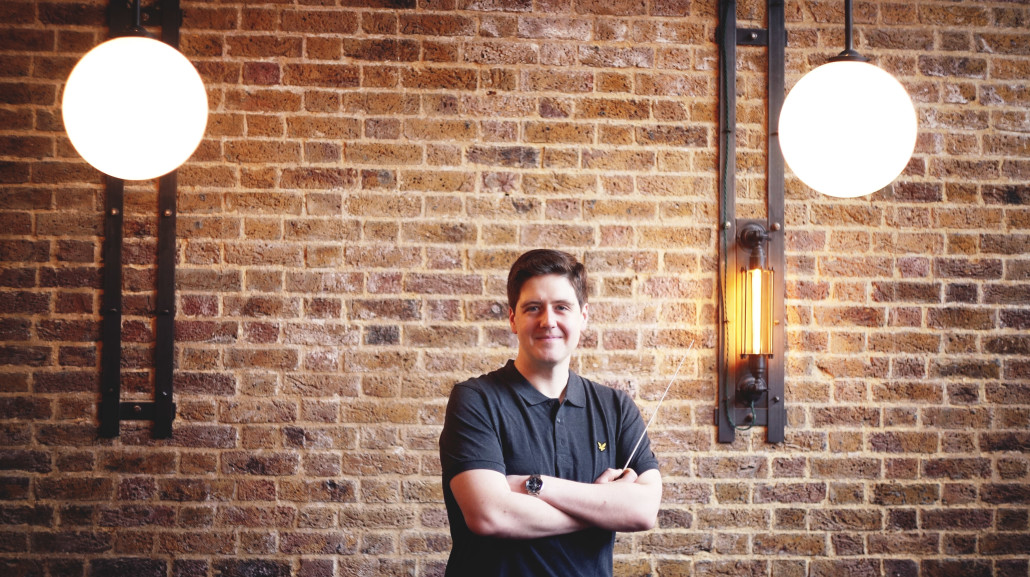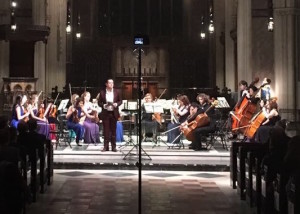24th February sees the Firebird debut of conductor Michael Thrift. We asked him a few questions about his career to date and the role of the conductor.

Michael Thrift
1. You are originally from Sydney, Australia which has quite a reputation of having a lively musical and cultural scene. Why the relocation to Europe?
In a word – opportunity. The Sydney scene is indeed vibrant and of high quality but for a conductor building a career it has some limitations. There isn’t much between music school and the upper echelons of the industry. I was conducting 5-6 days a week with youth orchestras and university ensembles but I quickly found that this was where the ladder ended in Australia. London has an abundance of orchestras and opera companies giving many exciting experiences to the younger professional. Furthermore, London is a city rich with high-quality companies that see training as central to their values and providing crucial stepping stones for people breaking into the top level of their field.
2. Since you’ve been in Europe you have conducted opera performances in Graz and Vienna, the Cheltenham Festival, The Queen’s Opera and Fulham Opera. Which was your most memorable experience and why?
A year after arriving in London, a strange convolution of circumstances led me into some work in opera. It went well and led to more and more work in this genre. Now I think of it as central to who I am as a musician, and equal to my work with orchestras. ‘Opera’ and ‘orchestra’ aren’t adversarial but complimentary. The skills you need for one inform the skill set of the other, especially when it comes to active listening, blending of sounds and finding balance between lines. This year I am already scheduled to conduct four operas – I can’t wait!
3. This next concert will be your debut performance with the London Firebird Orchestra. What sort of preparation do you need to do before you and the orchestra start rehearsing?
Like an iceberg, most of the hard work is ‘under the surface’ and never seen by the audience. Preparation is the key and knowing what you want to achieve musically and working out the best way to achieve it within the rehearsal time is crucial. I’m really looking forward to conducting the Beethoven, but as he had one foot in the classical period and one in the romantic there is even more to think about. For me, much of the preparation is determining a set of guidelines as to how I – and the orchestra – will respond to Beethoven’s instructions, so that we can develop an orchestral sound that is consistent and homogeneous. Otherwise, with so many players on-stage, we would run the risk of all playing Beethoven differently and the performance would lack cohesion.
Find out more about the Fantasia concert and buy tickets.

Michael Thrift
4. What are the key things you need to focus on during the actual rehearsal?
Listening. All music is listening – it informs everything. Insisting upon active listening from all involved always leads to good music-making. When the players of an orchestra are switched on to each other they balance better, they play in time easier, they are more sensitive to dynamic needs and they play more musically. When you encourage players to listen you can empower them to rely on their own musicianship to help them make decisions in the moment. This actually frees me up as a conductor – I don’t have to spend as much time fixing tuning errors or timing issues but can focus on bringing out the best musical qualities of the piece.
5. And when it comes to the concert itself, what would you say is your key function then?
To be a navigator through the music. If the players have been rehearsed well, they know all that they require, they just need to be reminded of what is happening and what is coming up, who they should be listening to now, and what they should next be getting ready to engage with. It’s actually one of the hardest lessons to learn as a conductor – to remember that the players are highly skilled and don’t need constant micromanaging. ‘Over-conducting’ creates tension and removes a player’s impetus to take charge of their own performance. If I do my job well, the performance will feel like an organic collaboration between myself and the players.

Michael Thrift
6. Any other exciting projects in the pipeline you can share with us?
The aforementioned operas for starters. I’m rehearsing Verdi’s Simon Boccanegra at the moment for a show in March. Sticking with Verdi, I’m part of a revival of Falstaff in a couple of months. In the second half of the year I’m leading a run of Strauss’s Die Fledermaus and I’m hugely excited to be conducting Wagner’s epic Parsifal too. There are several symphony concerts in the diary not least of which is the Firebird Orchestra’s June concert with Rachmaninov and Tchaikovsky on the ticket. This will be an awesome night.
For more information on Michael, keep an eye on www.michaelthrift.co.uk.





